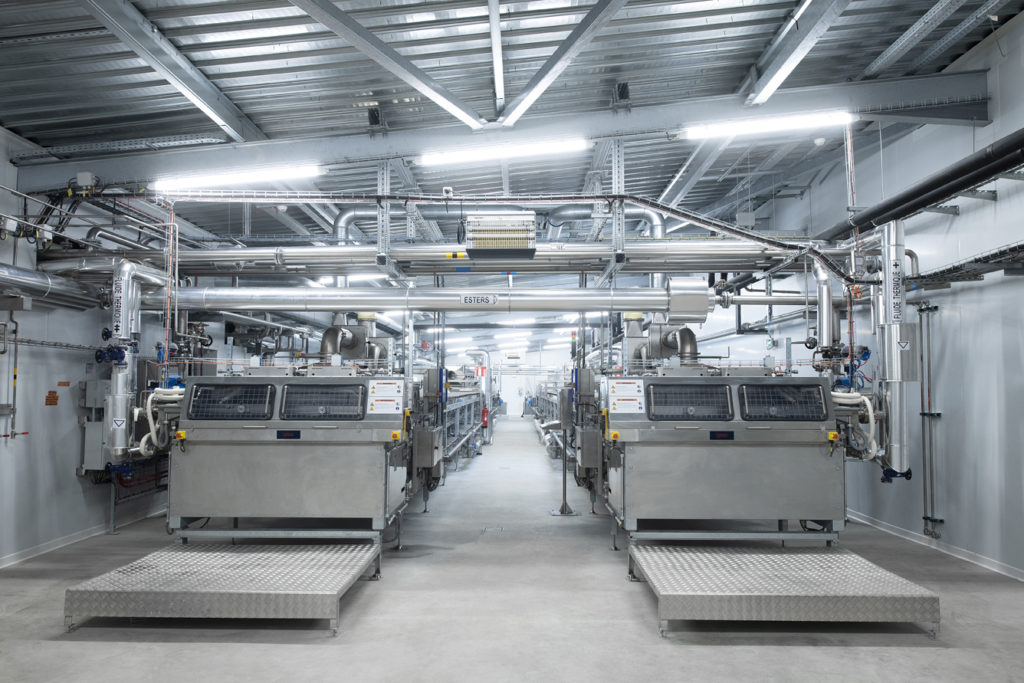Ulrich Nanz, Sales and Marketing Director at IPCO, describes the particular issues involved in granulating high viscous melts used by the food industry and explains how Rotoform technology has been tailored to overcome these challenges:
Food processing – like that of chemicals, cosmetics and pharmaceuticals – often involves combining a number of ingredients to create an end product. Mass production means doing so using industrial quantities, usually requiring materials to be converted into a form that is easy to reprocess.
One of the most widely used approaches to this is granulation, the forming of pastilles suitable for downstream transportation, storage, handling and dosing. For the food sector, industrial ingredients frequently converted into pastilles include emulsifiers, chocolate and edible fats.
The principle is simple: melt the product, form it into droplets and cool it down into solid pastilles. The reality of course is more complex, requiring precision engineering and strict control of everything from temperature to humidity. And there are qualities that make certain product types even more challenging. For the food industry, these include caramel and chewing gum resin, both characterised by their high viscosity.
Read our new article published in Chemical Engineering and learn more about IPCO’s Rotoform granulation systems:

